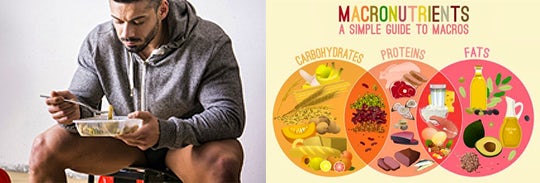
Eating Pre and Post Workout - Sports Chiropractor
When it comes to pre and post-workout meals, there are no hard and fast rules. What you eat before and after your workout will depend on your fitness goal whether it be endurance, increased muscle mass or fat loss. However, it is generally recommended that you eat both before and after your workout so that your body has the fuel you need to concentrate and perform better during your workouts and also to replenish any nutrients lost during your workout.
There are three main macronutrients that your body needs – carbohydrates, protein and fat. Each of these macronutrients has different effects on your training when consumed before or after your workout session.
Pre-Workout
Your pre-workout meal should be eaten at least 20 minutes before you work out or up to 2 hours prior to your workout. If you are planning to eat 2-3 hours before your workout, you may need a small snack in between to help refuel your body. Generally, the closer to the workout that you eat, the smaller the meal should be.
Post-Workout
During your exercise session, energy stores (glycogen) are depleted, electrolytes are lost through sweat and muscle tissues sustain micro damage. The aim of post-workout meals is to replenish depleted glycogen, aid in muscle recovery and restore fluid and electrolyte balance. After a hard workout a healthy balance of carbohydrates and protein is usually recommended. It is also important to note that during hard workouts that you can lose anywhere between 0.5 – 2L of sweat. Post-workout hydration is very important and it is generally recommended that you drink 0.5L to 1L of water after your workout to avoid dehydration and to replenish lost fluids and electrolytes.

Macronutrients
- Carbohydrates
Carbohydrates from meals is broken down into glucose and is stored in the muscles as glycogen. This glycogen store is used as energy by the muscles during short, high intensity workouts. Your body breaks carbohydrates down into glucose which triggers the release of insulin. Insulin encourages body cells to uptake the glucose and use it as energy. Snacks and pre-workout meals which are high in carbohydrates are often considered ideal for high-intensity, short workouts. Studies have suggested that eating simple carbs before your workout can also improve your performance and may even allow you to exercise for a greater period of time while maintaining intensity.
Carb-loading is a nutritional strategy in which an individual loads their diet with food high in carbohydrates with an aim to increase glycogen storage above its normal amount. The aim of carb-loading is to increase glycogen storage for longer work outs and usually involves a diet high in carbs for 1-7 days. - Protein
Eating protein (either with or without carbs) prior to working out has been shown to increase muscle protein synthesis i.e.. The process of building muscle mass. Benefits of incorporating protein into your pre-workout meal includes;
• Improved muscle recovery
• Increased muscle performance and growth (due to increased anabolic response)
• Increased strength and reduced lean body mass
Protein takes longer for the body to process than carbohydrates therefore it is suggested that you do not need a large amount. Protein sources that are easy to digest such as a slice of turkey, handful of nuts, Greek yoghurt or a hard boiled egg are a great pre-workout snack idea. Protein snacks are also important to eat post-workout especially after strength training in order to aid in muscle maintenance and repair following your workout. - Fat
While glucose is generally the source of energy for short, high intensity workouts due to its availability, fat is the source of fuel for longer, low-moderate intensity workouts.
One study showed that a diet consisting of 40% fat over 4 weeks increased endurance running times in fit and healthy athletes. [1]

Dr Linda Schiller is a certified in sports chiropractic.
Whatever your fitness goals are, it is important to fuel your body before your workout and replenish lost nutrients after your workout. At Lakeside Chiropractic we can offer you nutritional advice and treatment which compliments your fitness goals. Our Chiropractors are registered with all health care providers which means you can claim your money straight back through the HICAPS machine on site. If you have any further questions or would like to book an appointment, give us a call on 9300 0095 or head to our website to book at www.lakesidechiro.com.au.
References
1. Venkatraman JT, Feng X, Pendergast D. Effects of dietary fat and endurance exercise on plasma cortisol, prostaglandin E2, interferon-gamma and lipid peroxides in runners. J Am Coll Nutr. 2001 Oct;20(5):529-36. doi: 10.1080/07315724.2001.10719062. PMID: 11601568.
Schedule an Appointment


